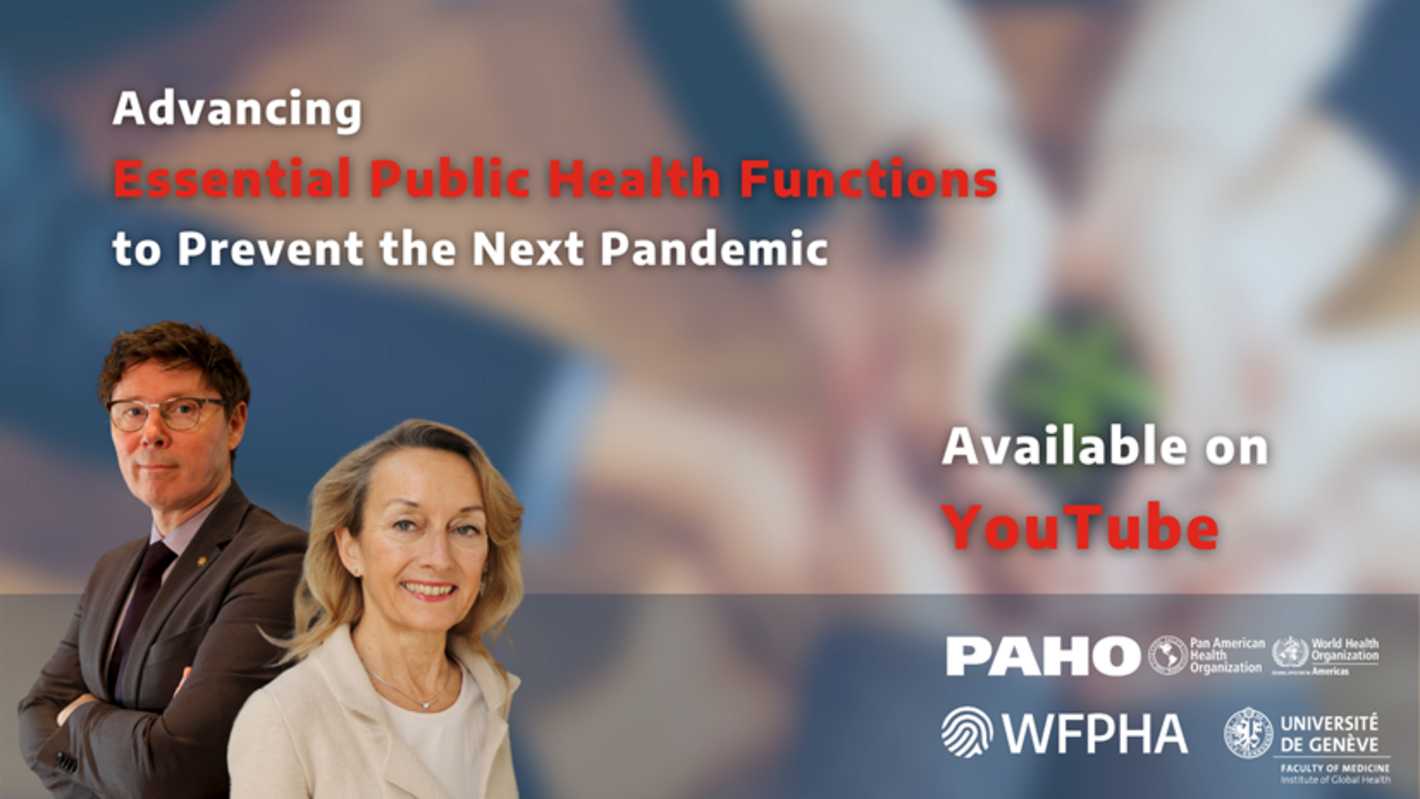
Washington DC, 24 May 2021 (PAHO)- Experts from the Pan American Health Organization (PAHO) and the World Federation of Public Health Associations (WFPHA) discussed the challenges and best approaches to implementing the essential public health functions (EPHFs) in the response to the COVID-19 pandemic. The event, “Advancing Essential Public Health Functions to Prevent the Next Pandemic”, took place on 6 May, and was hosted by Bettina Borisch, WFPHA, Executive Director.
James Fitzgerald, PAHO/WHO Director, Health Systems and Services, defined the essential public health functions as “the capacities of health authorities, at all institutional levels and together with civil society, to strengthen health systems and guarantee the full exercise of the right to health, acting on the risk factors and social determinants that have an effect on the health of the population.”
In December 2020, PAHO launched the publication The Essential Public Health Functions in the Americas: A Renewal for the 21st Century. Conceptual Framework and Description, and urged the countries of the Americas to renew the essential public health functions to provide quality public health services and actions, to address epidemics and to advance toward universal health. The new definition of the EPHF seeks to help overcome “the fragility of health systems in responding to the needs of the population," said Fitzgerald.
This renewed proposal has an institutional perspective in terms of the capacities of the State and society to perform essential functions to protect the health of the population. Another feature of the approach is the recognition that leadership and stewardship capacity of health authorities requires strengthening to ensure effective application of the EPHF at all institutional levels.
The pandemic has disrupted many essential health services, including programs people depend on to manage conditions like chronic diseases, HIV, tuberculosis, and malaria, immunization programs, programs for mother and child. The most vulnerable sectors of the population have been disproportionately affected by COVID-19.
“Studies done by PAHO and the World Health Organization show that disadvantaged groups are more negatively impacted to higher COVID-19 infection rates, worse COVID-19 severity, lack of access to treatment, and higher mortality rates,” said James Fitzgerald. “COVID-19 has amplified the existing barriers in access to health, particularly in more vulnerable communities.”
PAHO is supporting countries in developing comprehensive plans and policies to strengthen the essential public health functions as a health sector and intersectoral agenda.
“Reducing inequalities is a central linchpin for all phases of the recovery process. Countries need to work to minimize the financial impact of this public health emergency on the most vulnerable by removing barriers to care, providing financial safety nets, and supporting basic needs,” said Fitzgerald.
The activity was supported by WFPHA and the University of Geneva. WFPHA is a worldwide professional society that represents and serves the broad field of public health internationally to make a difference in the health of the people in today's globalized world. Access to the recording here



